Low-competition keywords are keywords or phrases that people don't search for as often as others. Typically, they are more specific and consist of 4 to 8 words. The number of times these keywords are searched for can vary, but usually, it's between 100 and 1,000 times a month. These keywords are particularly useful for promoting small websites that may struggle to compete against larger sites when using popular, high-competition keywords.
So, how do you find low-competition keywords? Well, to get a low-competition keyword, a user needs to add extra details or qualifications to a high-competition keyword. By doing this, they narrow down their search and move from high-competition words to medium-competition words, and finally to low-competition keywords. The diagram below illustrates this process: medium-competition keywords are derived from high-competition keywords, and low-competition keywords are derived from medium-competition keywords.
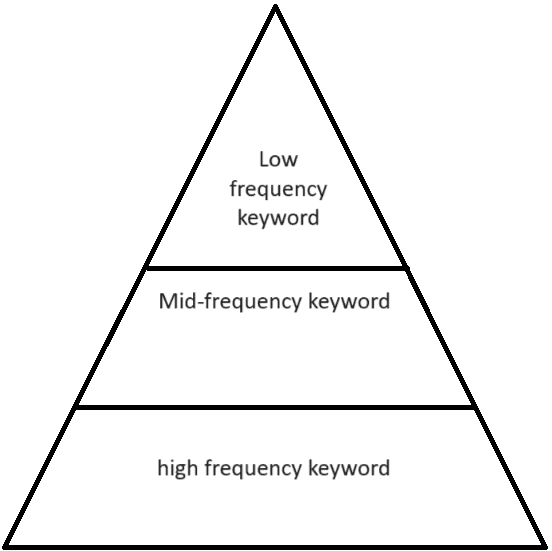
Low-competition keywords are also referred to as "Long-tail keywords." This means they are more specific and provide additional clarification to the main keyword. For instance, if the main keyword is "buy a tablet," it doesn't have any additional clarification, so it will generate around 2.5 billion search results on Google. However, if we add a tail to the keyword, such as "Buy Apple tablet in Hartford online cheap," the tail being "in Hartford online cheap," the keyword will produce around 8 million search results.
The key characteristic of low-competition keywords is that they involve adding more words to the original keyword. The more words added, the fewer competitors there are for that specific keyword, and it will be searched for less frequently in search engines.
Let's consider an example: an affiliate marketer is working with a betting offer using the RevShare model. They need a consistent source of traffic, so instead of constantly developing new push notifications, the affiliate marketer decides to focus on SEO. This proves to be a good choice because, according to the Google Trends report, the keyword "Sport betting" in the US has an average popularity of around 40 points per month, occasionally reaching a few hundred points.
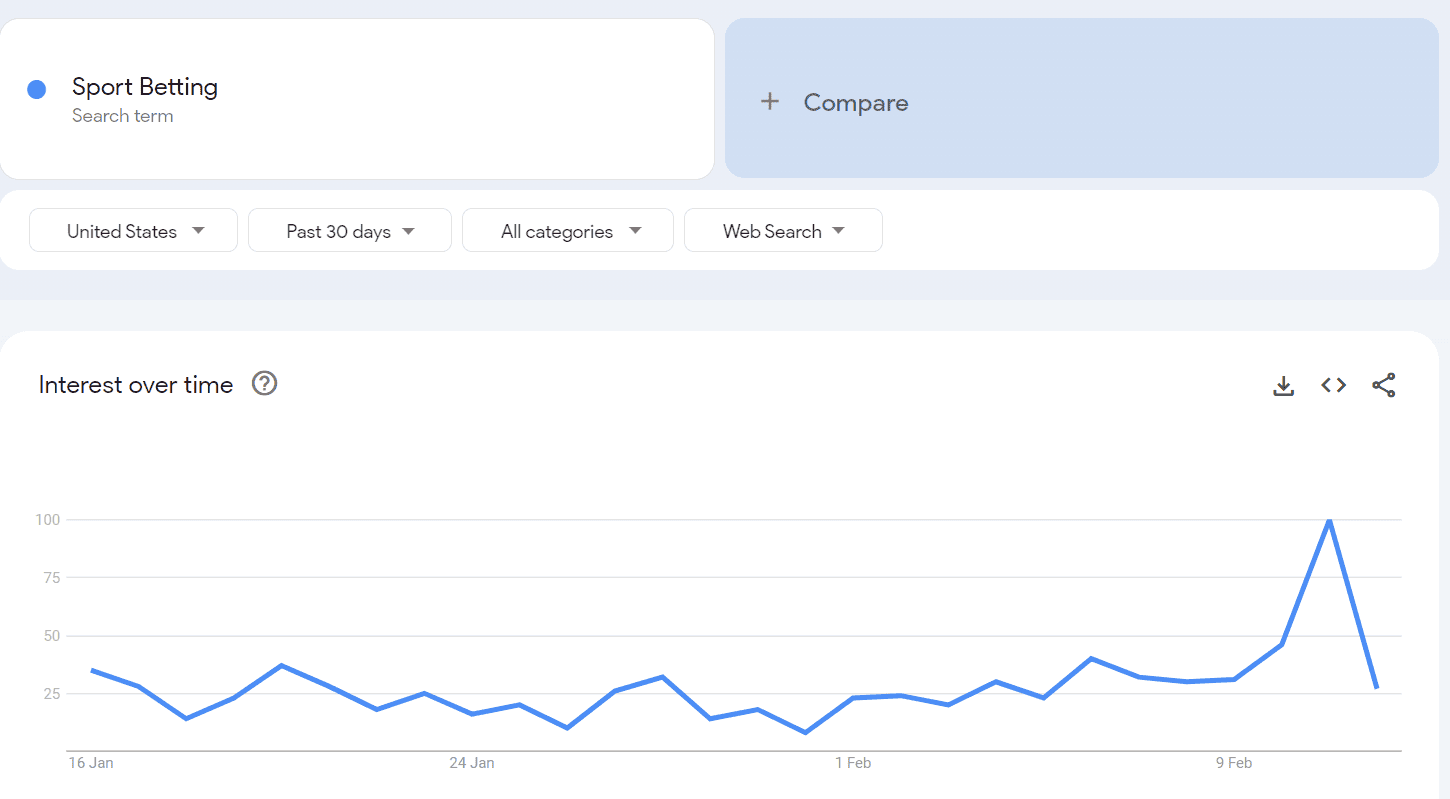
What would happen if a website decides to promote its offer using the keyword "sport betting"? The affiliate marketer types this keyword into Google and sees that there are between 500 and 800 million search results. This indicates that the keyword "sport betting" is a high-competition keyword, meaning it is commonly searched for by many people.
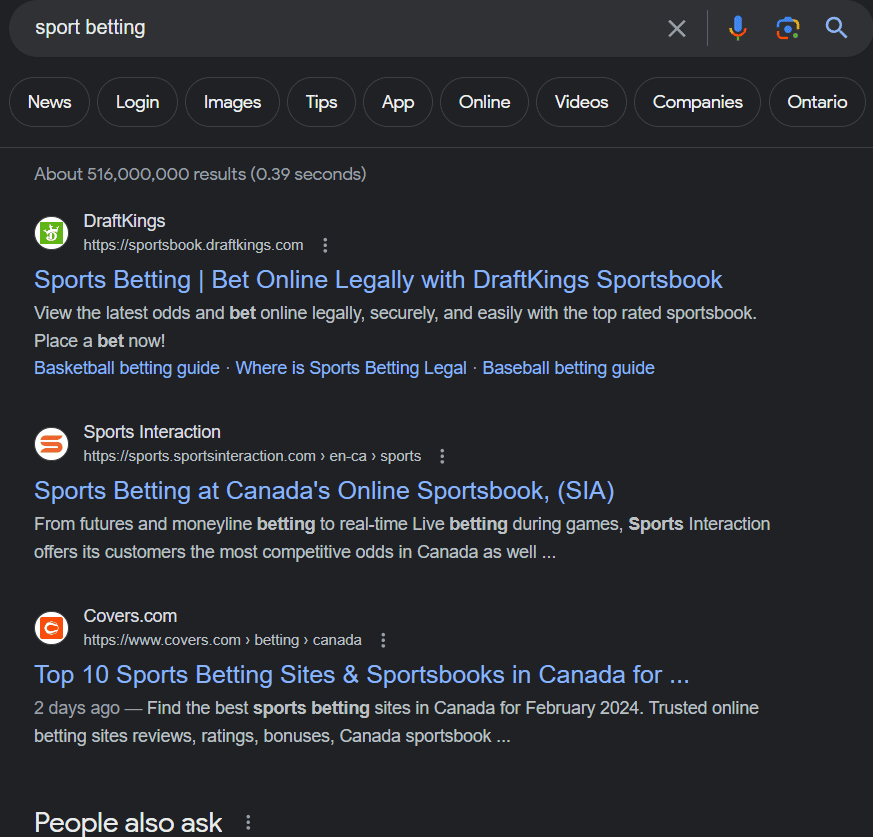
When you're up against 500 million other websites targeting the same audience, it's tough to secure a top position. Even if an affiliate marketer creates an amazing website and optimizes it for other keywords, they still have to contend with 500 million competitors. Attracting traffic through high-competition keywords becomes a difficult task.
However, what if the affiliate marketer decides to refine the keyword? For example, if they search for "Sports betting in the USA online," Google returns 96 million results. This falls into the category of a mid-competition request.
While the competition is still high, it becomes easier to rank your page among the top results.
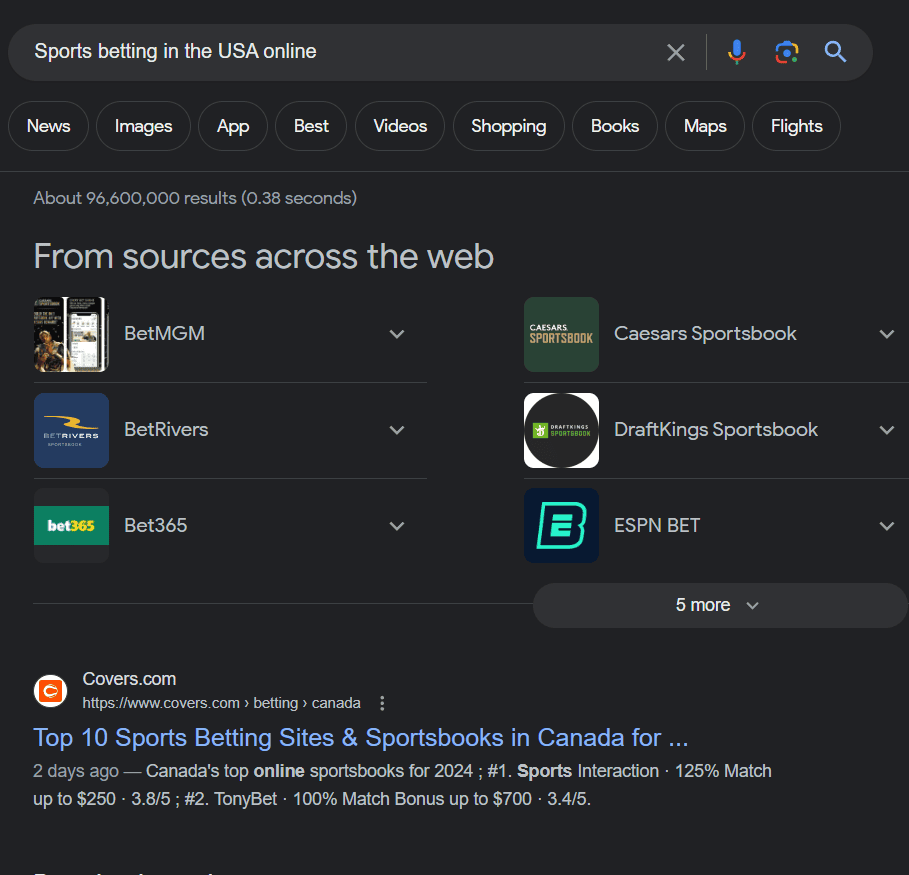
But the affiliate doesn't stop there. They make the keyword even more specific: "Betting on football in the USA online with high odds for free."
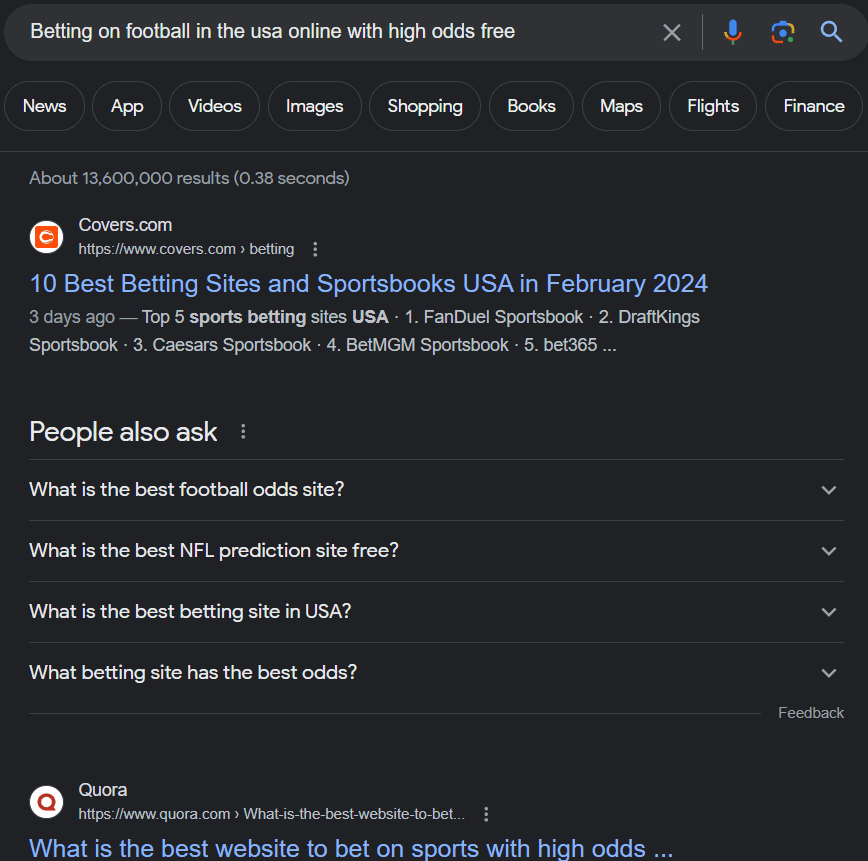
Now, instead of competing with 500 million websites, there are only 13 million worldwide. This is where the power of low-competition keywords comes into play: there's less competition for these keywords. As a result, a website promoted using low-competition keywords has a better chance of consistently ranking high and attracting visitors.
If you're interested in achieving similar results, this article will delve into the advantages and disadvantages of low-competition keywords. It will show you how to search for them, who they are suitable for, and how to adapt your content to them to ensure a steady flow of traffic.
Who are low-competition keywords suitable for?
Low-competition keywords are a good fit if:
- You are working with an unpopular offer or product that doesn't have widespread popularity.
- You are creating a new website and want to promote it to attract traffic.
- You are in a niche market that appeals to a specific type of audience.
- You write informational content with native advertising, where you can incorporate low-competition keywords seamlessly.
For example, if you collaborate with a well-known brand like Nike and your goal is to drive traffic to their website featuring a new model of sneakers, it wouldn't make sense to focus on promoting low-competition phrases. Since Nike is already established and popular, they will naturally rank high in search results. In such cases, other marketing strategies like push notifications would be more effective. This approach is particularly effective when using ad networks such as MyBid, where you can attract a significant amount of traffic through push and pop ads formats.
However, if you're promoting a new betting offer, like the affiliate example mentioned earlier, low-competition keywords can be quite helpful. You have the flexibility to create new pages and texts targeting different geographies, situations, examples, and intent. The options are endless, and you just need to select the right key phrases.
Now let's dive into how to search for these low-competition keywords to build a high-quality semantic core.
How to find low-competition keywords
There are two ways to find low-competition keywords: manual selection and using specialized software. Let's explore both methods.
Manual keyword selection
To manually find the keywords you need, you can rely on Google. Start by considering your offer and think about what keywords people are likely to search for. For example, in the case of betting, a popular search term would be "Sport Betting." Enter this phrase into Google, and it will provide you with suggestions and related search queries.
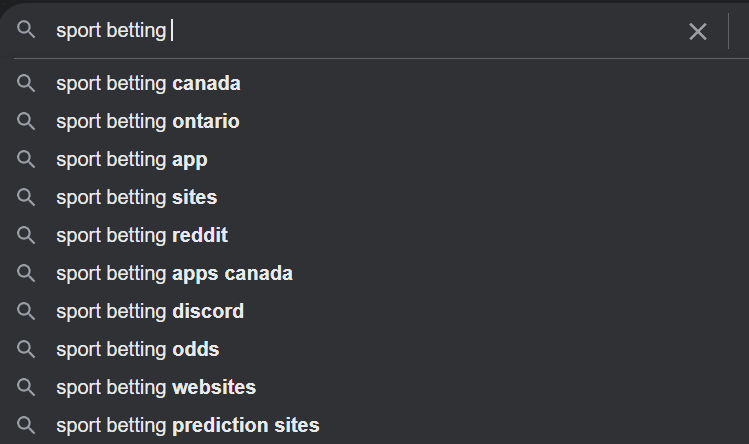
You can further refine your keywords by selecting one of the suggested results and observing the related search queries.
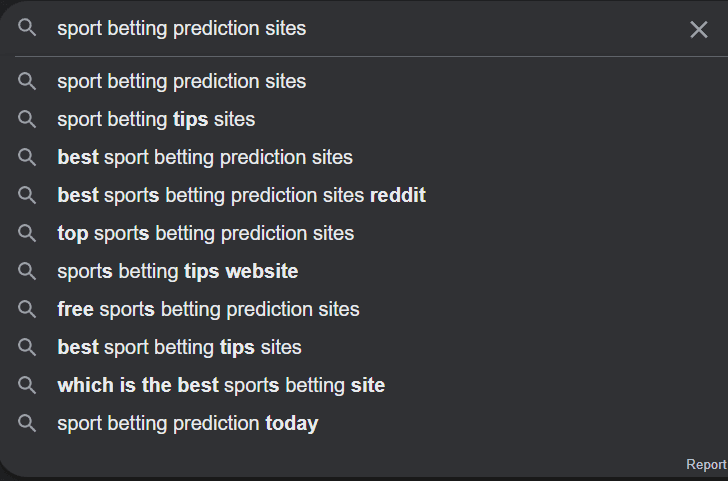
This way, you can clarify and narrow down your keywords to eventually find low-competition options.
Another method is to scroll to the bottom of the search results page and look for the "People are also searching" section. Here, you can find additional refined keywords that can be useful for your purposes.
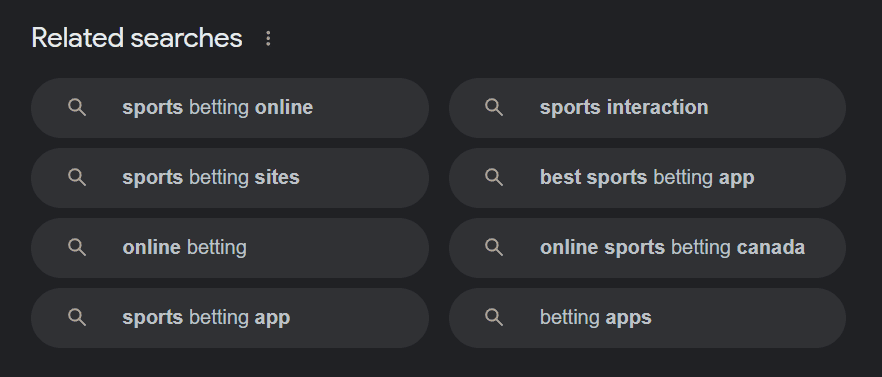
Clicking on these keywords will lead you to more phrases and ideas.
Finding low-competition keywords using software
There are software tools available for searching suitable keywords, including both high-competition and low-competition keywords.
For example, the Google Keyword Planner is a popular tool for working with the Google search engine. It allows you to search for new keywords based on specific examples and provides potential statistics, indicating which keywords are high-competition and which are low-competition. To use this service, you'll need a Google account.
Let's take an example to see how it works:
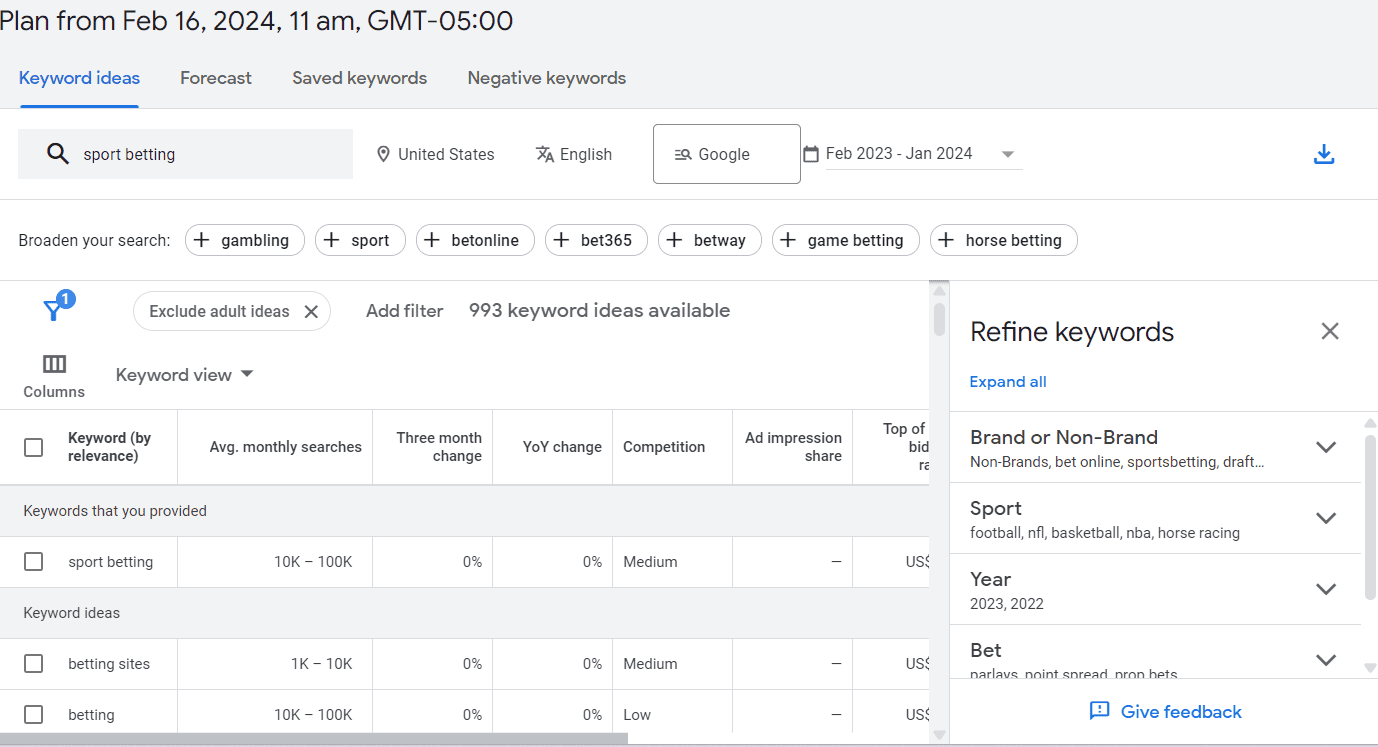
Suppose an affiliate marketer or media buyer decides to promote a betting offer and uses the keyword "Sport Betting" to search for competition forecasts. The Keyword Planner suggests various related keywords, both high-competition and low-competition.
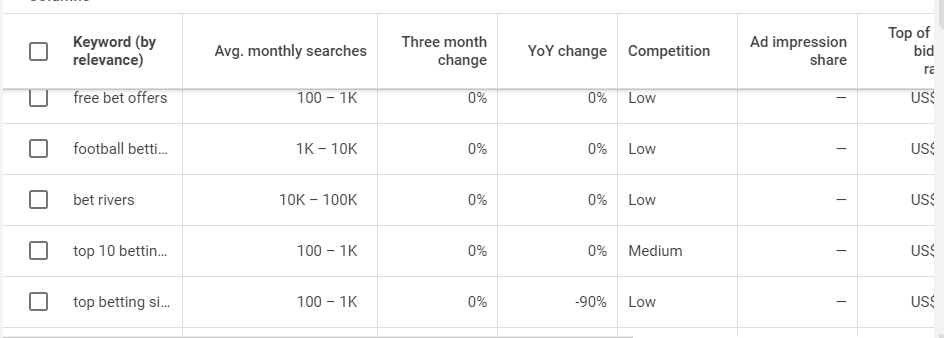
Low-competition keywords typically have a monthly search volume ranging from 100 to 1000. These are the keywords that the affiliate marketer should focus on.
Once you have identified low-competition keywords, you can study them in more detail, build a semantic core around them, and incorporate them into your content. If your text includes these keywords, and your page is fast and user-friendly, you have a good chance of ranking high and consistently attracting clients. It all comes down to using the right phrases.
Pros and cons of using low-competition keywords
Promoting low-competition keywords has both advantages and disadvantages. Let's look at them in more detail.
Pros of using low-competition keywords:
- Low competition: Promoting a website using low-competition keywords is easier compared to high-competition keywords. It's much easier to rank higher among 110 thousand competitors than among 850 million. While there is still competition, it is not as intense.
- Combination with voice searches: Low-competition keywords often align with user queries made through voice input. By incorporating these phrases, you can attract a significant number of visitors who perform voice searches.
- No need for contextual advertising: With low-competition keywords, there is no need to rely heavily on contextual advertising. If your website contains relevant content optimized for low-competition keywords, it will consistently rank high in search results, resulting in organic traffic.
- No need to purchase links: When promoting through low-competition keywords, internal site optimization takes precedence over external backlinks. The internal structure and linking within your website play a more significant role in ranking than external links from other sites.
- Targeted audience: Using low-competition keywords allows you to target specific user intent. For example, when someone searches for "Buy a smartphone," they are in the early stages of their decision-making process. However, if they search for "buy Honor X8b smartphone in Brookhaven," they are a "hot" client with a clear intention. By targeting these specific keywords, you can attract highly interested and motivated customers who are more likely to take action.
- Guaranteed results: High-competition keywords can quickly push a website out of the top search results due to intense competition. However, low-competition keywords help you maintain a higher position in search engine rankings. As long as your services remain relevant and you stay active in the market, you can continue to attract customers through these keywords.
- Cost-effectiveness: Low-competition keywords require minimal financial investment. You only need to allocate funds for domain purchase, website development, and maintenance. The key is to focus on creating high-quality content, optimizing your site for user experience, and ensuring its speed and functionality. By doing so, your website can maintain a top position in search results for an extended period.
Cons of using low-competition keywords:
- Requires a lot of work on the website: If you choose to promote a betting offer through SEO using low-competition keywords, be prepared to invest significant effort into your website. Instead of constantly coming up with new advertisements, you'll need to create new pages regularly. For instance, let's say you write an article targeting a couple of low-competition keywords, each searched for about 1,000 times a month. This means that in a month, you might attract around 2,000 visitors through these low-competition phrases, but not all of them will become leads. Typically, you can expect around 50-100 visitors per month. However, if you create 100 articles, each targeting 4-5 long-tail phrases, it can be an extensive and time-consuming task. But the good news is that it can bring in a consistent flow of visitors to your site.
- Not suitable for pre-landers and landers: Low-competition keywords are not ideal for promoting one-page websites like pre-landers and landers. These types of sites lack the space to accommodate a significant amount of regularly updated content, which is crucial for effectively utilizing low-competition keywords. This can make it challenging for customers to smoothly transition from the low-competition keyword search to the landing page.
- Initial low traffic: When you first start using low-competition keywords, it may take some time to see an increase in traffic. Until you have filled your site with enough content and given it sufficient time, low-competition keywords may not bring in many new leads. It requires patience and a lot of hard work to change this situation. However, after about one and a half to two months, you can expect to start receiving a steady stream of new traffic.
How to create content to promote low-competition keywords
When it comes to targeting low-competition keywords, you need to adopt a specific approach to your website. What does that mean exactly? Well, it means you'll need a huge amount of content.
Each unique low-competition keyword phrase should have its own dedicated page with relevant content. Take a look at the simplified diagram below:
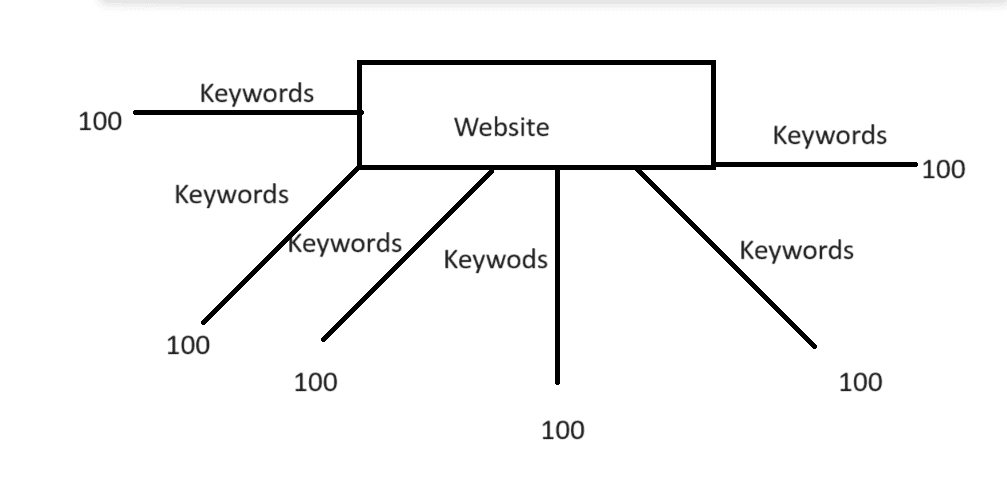
This diagram illustrates how low-competition keywords work on multi-page websites. Let's say you have a website with six pages, each targeting a different low-competition keyword. Each keyword has a monthly search volume of 100 times. In the worst-case scenario, these six pages can potentially bring in 600 visitors per month. Now, imagine if you had 100 such pages or if the search volume was higher, say 500 times. As long as your website remains highly ranked, you can expect a significant amount of traffic, even reaching tens or hundreds of thousands of unique users.
To ensure that these low-competition keywords drive more traffic to your website and help it maintain its top position over time, it's important to create interesting and engaging content. Low-competition keywords are particularly effective for promoting information-rich websites with unique and in-depth content.
For example, in the context of betting, suitable content could include bookmaker reviews and answers to common questions from bettors. You could address topics such as how to increase your chances of winning bets or which team to bet on in an upcoming event. It's crucial to provide comprehensive answers to these questions, covering the user's intentions and eliminating the need for them to visit other resources. Here's an example of a relevant low-competition keyword for an informational article about betting: "How to withdraw money from [bookmaker name] if technical support is unresponsive."
If an affiliate marketer believes that quantity is more important than quality and resorts to buying cheap and poorly written content, their choice of low-competition keywords won't be of much help. In fact, it may harm their website. It's essential to put yourself in the user's shoes and consider how they would react to poorly written and spammy content.
When creating content, ensure that the low-competition keyword is included in the title tag, meta tags, and the title of the article itself. The entire page should revolve around the selected keyword, with subheadings and a conclusion that are all related to it. This helps search engines understand the relevance and focus of your content.
Conclusion
Low-competition keywords are particularly beneficial for small and new websites as they help them maintain a higher ranking and compete with established sites. However, it's important to remember that other aspects of SEO are also crucial. These include having high-quality and comprehensive content, ensuring fast site speed, optimizing alt tags, creating an appealing design, and considering behavioral factors.
While low-competition keywords are valuable, it's also worthwhile to consider high-competition keywords. Creating multiple pages that target high-competition keywords can potentially bring in even more traffic and eventually help your site break through to the top rankings.
If you're looking to quickly attract a large amount of traffic to your site and low-competition keywords or other strategies aren't producing the desired results, you can try out advertising networks like MyBid. We offer various advertising formats, including push notifications, pops, and video ads, across 200 available geos. Our fully managed services can make your work easier and potentially increase your earnings.














